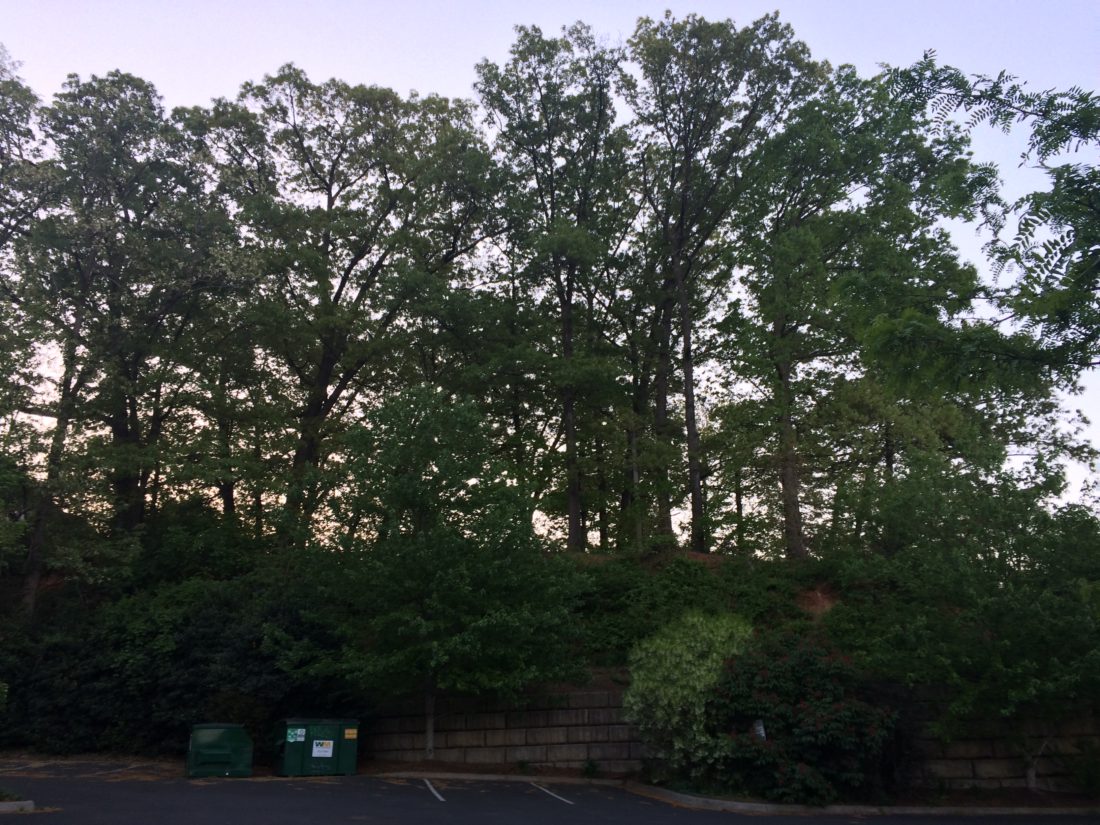“I know on top of all these other crises — policing and coronavirus and so forth — to talk about climate change seems like a lot,” said Tree Protection Task Force member Steve Rasmussen during Asheville City Council’s Aug. 25 meeting. “But that is exactly what this is addressing, and that is what we’re going to be grateful for a few years down the line.”
Rasmussen and other environmental advocates addressed Council in support of a proposal to strengthen protections for the city’s urban forest. According to an Urban Tree Canopy Study prepared for the city in October, Asheville lost 6.4% of its tree cover between 2008 and 2018, making the area more prone to high surface temperatures and flooding associated with climate change.
Chris Collins, the city’s site planning and development manager, explained that a new resource management overlay district would be established to enforce the stronger protections on all properties within the city’s corporate limits. Amendments to the city’s Unified Development Ordinance would require tree preservation in commercial and residential developments, outline how much canopy cover sites must include and add measures to incentivize preservation over new growth.
Developers would also have the option to pay a fee-in-lieu if they could not or choose not to comply with the canopy cover requirements. All payments would fund tree canopy preservation in other parts of the city, Collins said. “It’s really a choose-your-own destiny situation,” he noted.
At a July 1 meeting, Asheville’s Planning and Zoning Commission had voted 6-1 to recommend that Council not adopt the new rules, claiming they would place too much of a burden on developers. Commenter and current Council candidate Kim Roney, however, said that perspective was too narrow.
“One might hope to see a greater balance of the conversation not just around barriers to construction, but acknowledgement of the benefit to our ecosystem and our people,” Roney said. “This looks like setting high standards for developers, neighbors and businesses joining our community as they join in understanding how seriously we take the impact of development in our natural and lived environment.”
At the end of the public hearing, Council members Gwen Wisler, Brian Haynes and Julie Mayfield expressed support for the proposed changes. “I really appreciate all of the work that the community and the staff have done on this, and I look forward to voting positively on all three resolutions at our next meeting,” Wisler said.
“Ditto,” Mayfield affirmed.
Because North Carolina’s virtual meeting procedures require emailed public comments to be accepted up to 24 hours after the close of a public hearing, Council will not formally vote on the proposals until its next regular meeting on Tuesday, Sept. 8.




Before you comment
The comments section is here to provide a platform for civil dialogue on the issues we face together as a local community. Xpress is committed to offering this platform for all voices, but when the tone of the discussion gets nasty or strays off topic, we believe many people choose not to participate. Xpress editors are determined to moderate comments to ensure a constructive interchange is maintained. All comments judged not to be in keeping with the spirit of civil discourse will be removed and repeat violators will be banned. See here for our terms of service. Thank you for being part of this effort to promote respectful discussion.